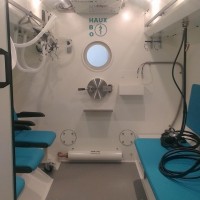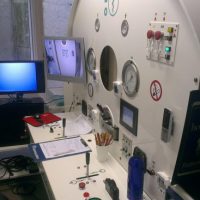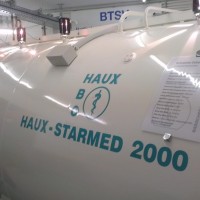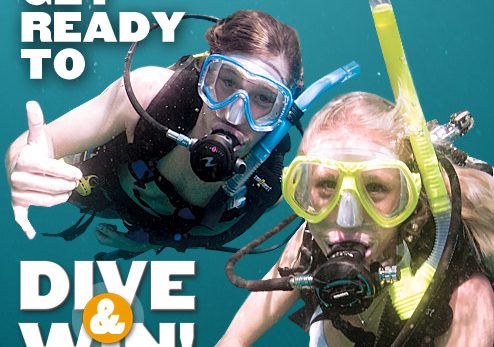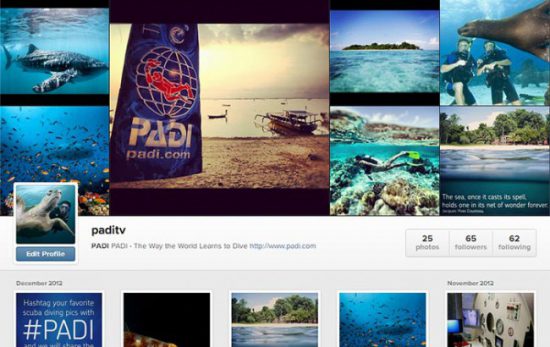On Sunday 18th November I experienced something that no diver ever should, a session in a recompression chamber. Luckily for me this was only a test drive!
It all started with a trip to the Badischer Tauchsportverband (BTSV) decompression chamber at the Helios Hospital in the German lake side town of Überlingen (a picturesque little town on the shores of Lake Constance and also location of some more normal dive sites)
The chamber itself serves the South West of Germany, Switzerland North of the Alps and parts of Austria and was manufactured by Haux (Haux starmed 2000) and was installed only this year replacing a rather retro looking older one.
So why was I there? Well as part of a learning experience to broaden my diving knowledge and it was certainly worthwhile.
The chamber itself takes a maximum of 6 and being a group of 10 we split into two groups. Being in the 2nd group gave us the advantage of observing the process and the effects on the 1st group. The most notable to the outside observer was the onset on the effects of Nitrogen narcosis at around 27m for some members.
We started our session by making sure we wore only natural materials that do not produce static due to the fire dangers in a contained high oxygen environment. Todays dive would be to 50m depth with a bottom time of around 9mins with descent taking around 6 mins. Apart from the effects of narcosis two other things struck me, one with important implications for your dive. Your perception of time passing is effected dramatically and combined with the restricted cognitive function can have serious implications for a diver in a real life situation. This was dramatically exposed when we were given a series of simple tasks to perform within a 2min time limit. The final effect was one you don’t really notice underwater much, the fact that when you talk you sound like a Smurf, which proved highly amusing.
Having spent 9mins at 50m (and it felt like only 1min) we started our journey back up via a number of decompression stops. At around the 12m mark we started to breathe 100% O2 via masks for the final slow ascent rate including 17mins at 6ms. The total ‘Dive’ time was around 69mins, after this we were all happy to get out again.
This is an excellent experience where divers of any level can learn and gain insights into their own abilities and some of the issues that may lead to an emergency situation.
For me 69mins in the chamber was more than enough, and it really makes you appreciate that in a real life situation your normal treatment session is 8 hours. Which also brings us on to the subject of cost and the importance of having a suitable diving insurance. This chamber costs 540euro an hour to run, and with a typical session being 8 hours and a treatment course that may stretch to 30 sessions you can see that the costs for an uninsured diver can be high!
For those interested here is the dive profile (in German):
[googleplusauthor]